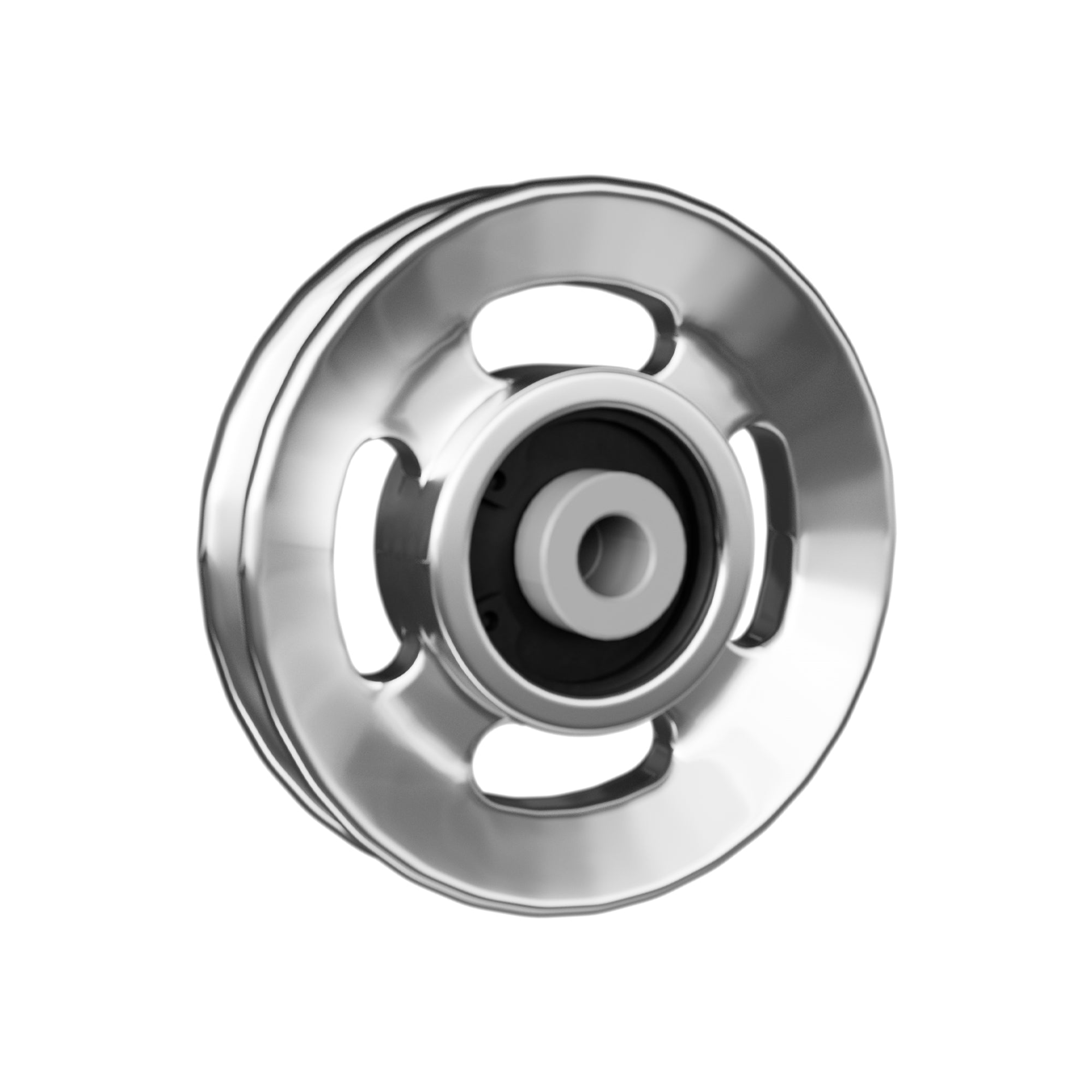When it comes to building stronger, more defined biceps, the debate often centers around whether the barbell curl or dumbbell curl is the superior choice. Both exercises are staple movements for anyone looking to grow their arms, but each has distinct advantages depending on your goals, form, and experience level. In this article, we'll dive into the differences, benefits, and key considerations when choosing between barbell curls and dumbbell curls.
The Basics of Barbell Curls
The barbell curl is a classic exercise that targets the biceps, particularly the long head, which contributes to the peak of your biceps. When you use a barbell, both arms work together to lift the same amount of weight, which can lead to increased strength due to the heavier load you can handle. The barbell forces both arms to move in unison, which can promote symmetry and efficiency in your training.
One of the main advantages of barbell curls is that you can typically lift more weight compared to dumbbells. The uniform grip also reduces the need for stabilization from the smaller muscles in your arms, allowing you to focus entirely on the biceps. This is ideal for individuals looking to improve overall strength and lift progressively heavier loads.
The Basics of Dumbbell Curls
Dumbbell curls, on the other hand, allow for more range of motion and help to work each arm independently. This can be particularly beneficial for individuals with muscle imbalances, as it forces each arm to lift a separate dumbbell. By doing so, dumbbell curls can help ensure that both arms develop equally, preventing one arm from becoming disproportionately stronger than the other.
Another benefit of dumbbells is the ability to vary your grip and movement patterns. For instance, you can perform hammer curls (with a neutral grip), which target the brachialis and brachioradialis muscles in addition to the biceps. This variation helps create a fuller arm appearance and can provide a more comprehensive workout for the upper arm muscles.
Barbell Curl vs Dumbbell Curl: Pros and Cons
Barbell Curl: Pros
-
Lifting Heavier Weights: You can typically use a heavier load with a barbell, which promotes greater overall strength and muscle growth.
-
Improved Symmetry: Since both arms are working together, there’s a reduced risk of developing muscle imbalances.
-
Efficiency: The barbell curl is a straightforward movement that allows for quick progress, making it ideal for strength-focused training.
Barbell Curl: Cons
-
Limited Range of Motion: The rigid grip and motion may limit how much the biceps can fully extend and contract, reducing the overall range of motion.
-
No Independent Arm Work: If you have muscle imbalances or injury concerns, a barbell curl may not allow you to isolate and train each arm equally.
Dumbbell Curl: Pros
-
Full Range of Motion: Dumbbells allow for a wider range of motion, promoting better muscle activation and development.
-
Independent Arm Training: Each arm works independently, which is great for fixing any strength discrepancies between arms.
-
Variations: You can easily modify your grip or angle to target different areas of the biceps or forearms.
Dumbbell Curl: Cons
-
Potential for Lighter Weights: While dumbbells allow for more freedom of movement, you may not be able to lift as much weight as you could with a barbell.
-
Stabilization: Since each arm is working independently, more stabilizing muscles are engaged, which may make it harder to lift as heavy as you could with a barbell.
Barbell vs Dumbbell Curls: The Key Differences
Both barbell and dumbbell curls are effective at targeting the biceps, but they do so in different ways. Barbell curls tend to focus more on raw strength by allowing you to lift heavier weights, while dumbbell curls offer a greater range of motion and better isolation of each arm. If you're looking to build overall strength, a barbell curl might be the way to go. However, if you're focused on muscle symmetry or rehabilitation, dumbbell curls can provide the edge you need.
EZ Bar Curls vs Dumbbell Curls
Another option to consider is the EZ bar curl, which provides a slightly different angle for the wrists and elbows, reducing strain on the joints compared to a traditional straight barbell. The EZ bar curl allows for a more comfortable grip and can reduce the risk of injury, especially for individuals with wrist or elbow discomfort. However, dumbbell curls still offer greater flexibility in terms of grip variations and muscle activation.
Personal Experience with Barbell and Dumbbell Curls
In my own fitness journey, I've always favored incorporating both barbell and dumbbell curls into my training regimen. When I focus on strength-building, I tend to lean towards barbell curls, as they allow me to progressively overload my biceps. But I also make sure to include dumbbell curls in my routine, especially on days when I want to focus on muscle symmetry or enhance the mind-muscle connection. By alternating between the two, I can maximize both strength and aesthetic growth in my arms.
Which One Should You Choose?
Ultimately, the choice between barbell curls and dumbbell curls comes down to your personal goals. If you're looking for a straightforward way to lift heavier weights and build overall strength, barbell curls are likely the better choice. However, if you’re more focused on muscle isolation, range of motion, and targeting each arm individually, dumbbell curls may be more beneficial.
For a well-rounded arm training routine, consider incorporating both barbell and dumbbell curls into your workouts. Each has its own advantages, and using them together can help you achieve a balanced approach to building stronger, more defined biceps.
Whether you opt for barbell curls or dumbbell curls, consistency, progressive overload, and proper form are key to achieving your muscle-building goals.
















































Leave a comment
This site is protected by hCaptcha and the hCaptcha Privacy Policy and Terms of Service apply.